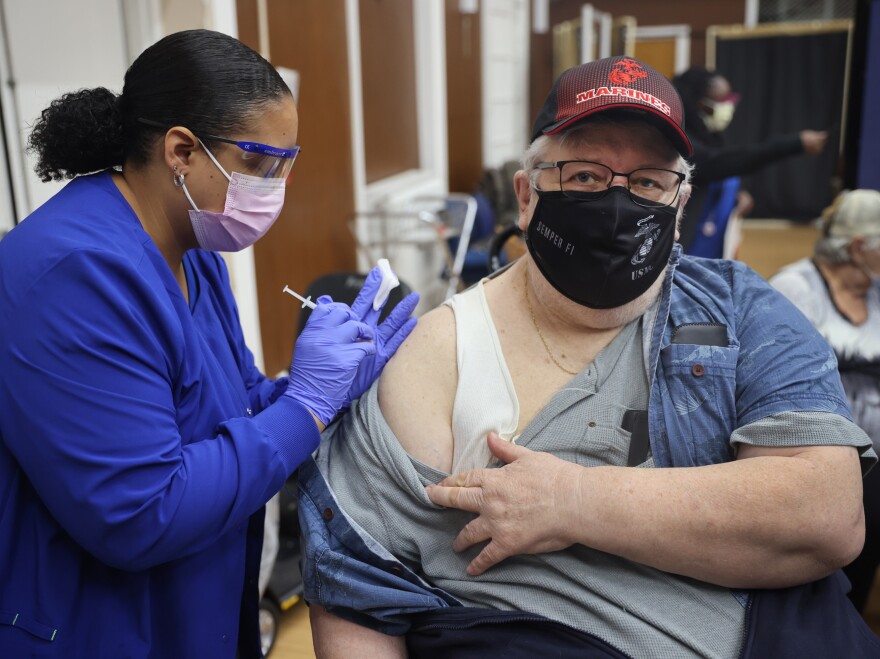Katen Moore has already gotten every COVID-19 vaccination available — the two original shots, two boosters with one of the first vaccines and a jab with one of the new vaccines updated to target omicron.
Even though she also had COVID once, she desperately wants another booster.
"I just don't want to get COVID again," says Moore, 63, a nurse practitioner who lives in North Plainfield, N.J. "I don't really know what the long-term risks are. And I don't really want to find out. I don't want the risk of long COVID. I don't want the breathing problems. I don't want the fatigue. I don't want those things."
But Moore can't get another COVID vaccination. The Food and Drug Administration has only authorized one booster dose of the newest formulations of the vaccines, the so-called bivalent shots.
The agency is planning for an annual COVID booster campaign starting in the fall — with vaccines that will have been updated to target whichever variant is expected to be circulating next winter.
But some people who are particularly vulnerable to COVID don't want to wait.
"You know, in the past, we've had upticks in the summertime," Moore says. "Why not get both?"
The FDA is reconsidering the situation and may authorize a second booster with the bivalent vaccines for at least some people, such as those who are at high risk because they have compromised immune systems or are 65 and older, a federal official who was not authorized to speak publicly told NPR. A decision could be announced within weeks.
That approach is similar to what the Britain and Canada have done, and what some vaccine specialists have been urging — especially with the ample of supply of vaccine available.
"Those doses are going to be expiring and will be thrown out. So it makes sense to have those shots in arms instead of being tossed in the waste basket," says Dr. Peter Hotez, co-director of the Texas Children's Hospital Center for Vaccine Development and dean of the National School of Tropical Medicine at Baylor College of Medicine. "It makes sense to get that second bivalent spring booster out there."
The main concern is the protection people got from their last shot has been fading, not just against getting infected but also possibly against getting seriously ill. So Hotez says people as young as 50 should be able to get a second bivalent booster if they want one.
"Historically, when you look at the monovalent vaccines, the protection starts to wane after four or five months. We don't know if that's the case with bivalent booster. But you don't want to find out the hard way," he says.
But others scientists aren't so sure. They say there just isn't any good evidence showing protection against serious illness has faded significantly or that getting another shot would help that much.
"I have no data to show me that a second bivalent is safe and effective. I have every reason to think it might be. But I don't actually have data," says Dr. Gregory Poland, director of the Mayo Clinic's Vaccine Research Group.
In addition, there's a theoretical possibility that it could kind of backfire — because the bivalent boosters target a strain that's already been replaced by a new one called XBB.1.5.
"The concern is that if we continue to give boosters against a virus that's not circulating when we do see the next variant you may not develop a vigorous immune response to that new viral variant," Poland says.
Less than 17% of those eligible for the first bivalent shot got one, and so the demand for another right now would probably be even lower.
But some people would rush to get one if they could, including Moore and Ellen McDaniel-Weissler, 63, who lives in rural Maryland.
"I am deeply convinced that the COVID pandemic is not over in spite (of) the fact that people are suffering from COVID fatigue as am I," McDaniel-Webster says. "But people are still dying of COVID every day."
Copyright 2023 NPR. To see more, visit https://www.npr.org.





